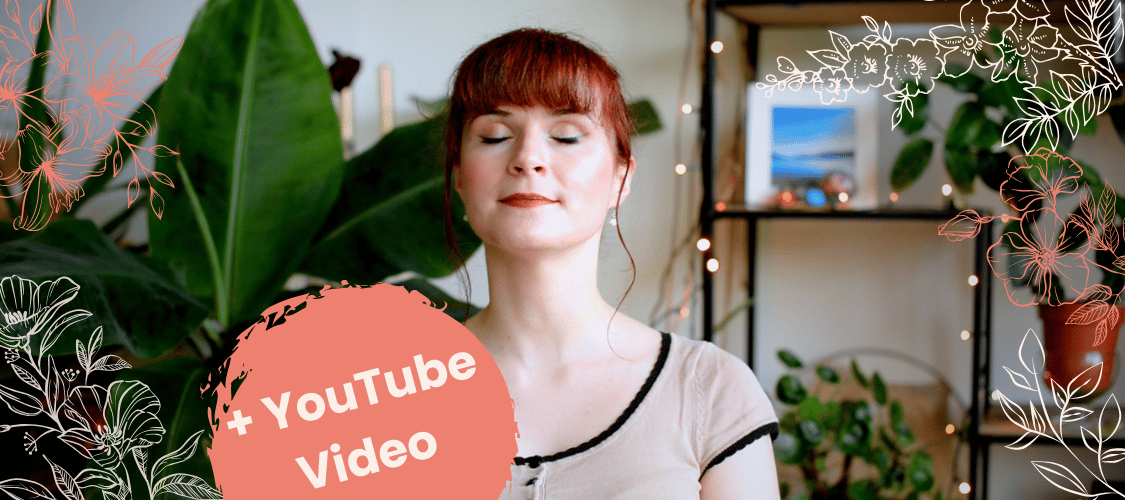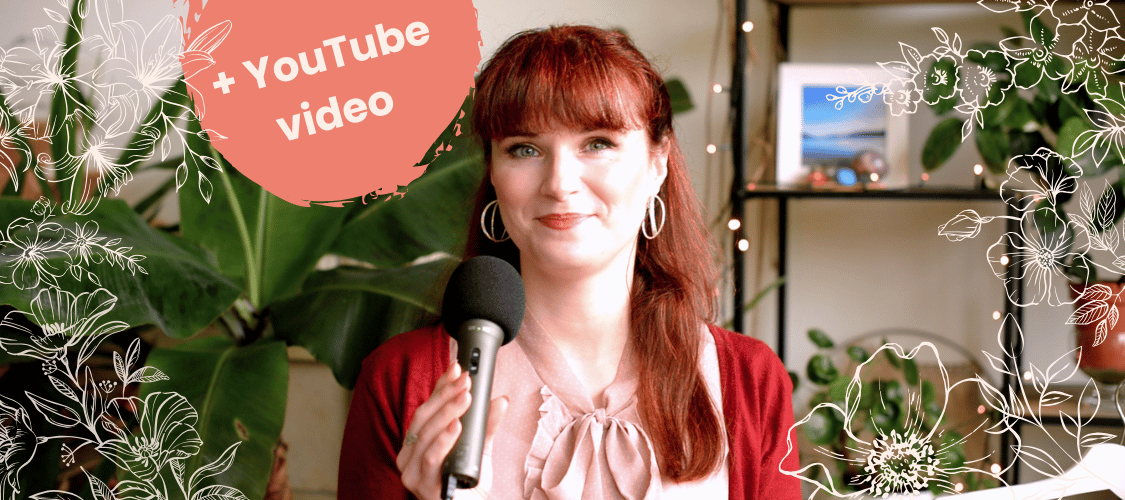We often hear about how important it is to manage time, but what’s even more crucial is managing emotional energy. Let’s learn how to stop giving away your energy and find our own way into emotional energy management.

Watch the Featured Video – Stop Giving Away Your Energy
Your Attention is Expensive
Your attention is the most valuable resource at your disposal. It represents your energy, your time, and, ultimately, your power. Your energy represents not only your time but also your focus and emotional well-being. It’s the core of your productivity and happiness. Yet, we frequently give our energy away to things, people, and situations that don’t serve us.
For anyone struggling with anxiety or a tendency to overextend themselves, managing your energy effectively is key to designing the peaceful, fulfilled life you deserve. But don’t worry – I’m here to help you fix that. I’ll show you how to heal your anxiety, design your own peace, and most importantly, how to maintain it.

What Is Emotional Energy?
Before diving into how to stop giving your energy away, let’s define what emotional energy is. It’s the fuel that powers our emotions, thoughts, and actions. Unlike physical energy, which we lose when we’re tired, emotional energy can be drained by people-pleasing, overthinking, worrying, or constantly helping others without taking care of ourselves. It’s when we, in a sense, neglect ourselves on behalf of serving others or focusing on others as our source of fulfilment, love, and validation.
For anxious individuals, emotional energy depletion can feel like a vicious cycle. Anxiety itself is a massive drain, and the more energy you give to the wrong things, the worse the anxiety becomes. The good news? It’s possible to regain your energy, maintain inner peace, and live more freely with healthy boundaries.
Are You Giving Away Your Energy?
The first step to reclaiming your emotional energy is awareness. Are you giving your energy away to things that drain you? Here are common signs:
- You feel emotionally exhausted after social interactions.
- You often say “yes” to things you don’t want to do.
- You feel guilty when you don’t meet others’ expectations.
- You put everyone else’s needs above your own.
- You’ve placed others as your source of love, validation, and fulfilment.
These are all examples of how we unconsciously give our energy away. The good news is that we can put an end to this with some simple yet transformative changes.
You Don’t Owe Anyone Anything
This might be controversial as many people will deem it ungrateful. A crucial mindset shift to preserve your energy and learning emotional energy management is understanding that you don’t owe anyone anything. Often, we feel obligated to help others, even when we don’t have the capacity. We overextend ourselves, thinking we must please everyone, from friends to coworkers to family.
When you start setting boundaries, don’t be surprised if some people push back. Those who benefitted from your lack of boundaries might resist and make you feel guilty. This resistance is often a sign that the dynamic wasn’t healthy for you to begin with. Let them go. Focus on relationships where your energy is reciprocated.
From my own experience, I realised that I was always going the extra mile for friends who wouldn’t do the same for me. That led to resentment – a feeling that only consumed me, not them. Resentment is toxic; it eats away at you.
Each time I prepared a birthday present for a friend just so that I wouldn’t even get the birthday wishes on my own birthday from this friend, I felt resentment. And it consumed me, not them. That’s the thing about resentment, it only hurts the person who feels it. It consumes you from the inside, eating in more and more. Forgiveness is a byproduct of healing so forgive them and do it for yourself so that you can set yourself free from this feeling of resentment. And it doesn’t mean you have to contact them to tell them you forgive them. Nor does forgiveness mean you condone what they did to you. Forgiveness is for your own benefit, so you do it internally, letting go and moving on, free of resentment. To forgive is to forget, once and for all.

Setting Healthy Boundaries
Boundaries are essential to emotional energy management. They are the lines you draw to protect your energy and well-being. Without boundaries, you allow others to take from you emotionally, which leaves you feeling drained.
But setting boundaries isn’t about building walls to keep everyone out. It’s about learning when to say “no” and not feeling guilty about it. Here are some practical tips for setting boundaries:
- Create personal space: Whether it’s physical or emotional, ensure you have time for self-care and reflection.
- Learn to say “no”: If something doesn’t serve you or align with your goals, decline politely but firmly.
- Limit time with toxic people: Spend your energy on relationships that uplift you, not ones that drain you.
Are You Giving From the Heart or Out of Expectation?
Many of us, especially women, have been conditioned to give endlessly to others—whether it’s at work, in friendships, or relationships. But here’s a question you should ask yourself: Are you giving from the heart, or out of expectation?
Surround yourself with people who give and receive. Relationships should be about mutual support, not one-sided giving. Reflect on whether you’re a people-pleaser because it genuinely brings you joy or because you fear not being loved for who you are but only for what you do for others. Reflect on this because it’s very important. We often attract into our lives what we think we deserve. And we also teach others how to love us and treat us based on how we love and treat ourselves. So pour your energy onto yourself.
When you give out of obligation, you’re depleting your energy without receiving anything in return. This creates resentment, which harms your mental and emotional well-being. Instead, strive to give from a place of love and authenticity. Only give what you can without expecting anything in return, and you’ll notice a huge difference in how much energy you retain.
I want you to know that you deserve love simply for being who you are – not for what you do for others.
Anxiety in Relationships
If you feel anxious in relationships and find yourself spiralling when there’s no contact for a day, you might have a fear of abandonment or codependency, or both as it goes hand in hand and it was also the case for me. These are often survival mechanisms from our past, but they no longer serve us in adult life. In fact, they can sabotage healthy relationships.
This will be typical for those of us who faced anxious attachment styles in the past. Now, I don’t condone such labels, we don’t want to identify with them. But we want to be aware of our patterns and we get there through self-observation and awareness. If you find yourself feeling anxious in a relationship with an otherwise kind man who generally treats you right, it’s likely because you’ve unconsciously placed all your energy on your partner. They don’t need to reach out because they already have your attention. And when they finally do, you’re so resentful that you react passive-aggressively, instead of being your natural, supportive self. This happens unconsciously first but once you observe it, you know and you can choose otherwise.
The Remedy
The remedy for improved emotional energy management is simple, but not necessarily easy: redirect your energy to yourself. Focus on your own needs. Prioritise yourself. Go hermit mode for a while. Disappear until you feel like you again. When you feel anxious, consciously bring your energy back to your own body. Feel your breath, your chest rising and falling. Where attention goes, energy flows.
Close your eyes and notice the sensations in your body and the soundscape of your surroundings. If thoughts arise, that’s okay—they simply help you become more aware when you recognise them. Thoughts are like trains, and you are the entire platform. Trains come and go; you don’t jump on them, you just observe and let them pass.
When you have negative thoughts, try to challenge them with something positive. Acknowledge them first, but then let them go. They aren’t truly yours. Our brains are biassed towards negativity because it’s linked to survival. Happy thoughts and emotions, on the other hand, are like white noise to the brain. So challenge your negative thoughts and shift your thinking to the other side of the spectrum. Ask yourself: What usually happens in similar situations? Is it really that bad? Am I being rational? What if it turns out even better than I expect?
This is an ongoing process that requires self-awareness and regular reflection. Here’s how you can start:
- Meditation: Spend time focusing on your breath and grounding yourself in the present moment. Where attention goes, energy flows. The more you bring your attention back to yourself, the more energy you’ll regain.
- Journaling: Write down your feelings, especially when you feel drained. This will help you identify the patterns that lead to energy loss.
- Self-care: Prioritise your needs. Whether it’s taking time off from social engagements or indulging in activities that make you happy, self-care is essential for maintaining emotional energy.
Conclusion
Prioritise your emotional energy! Protecting your emotional energy is crucial for living a peaceful, fulfilling life. By learning to set boundaries, redirecting your energy to yourself, and practicing forgiveness, you can reclaim the power that’s rightfully yours. Remember, your energy is your most valuable resource—guard it wisely, and you’ll notice a shift in your overall well-being and happiness.
With emotional energy management, you’ll no longer feel drained, anxious, or unfulfilled. Instead, you’ll experience a sense of empowerment and control over your emotional life, allowing you to live authentically and with greater peace.
Recommended next post to read:
10 WAYS HOW TO LEVEL UP AFTER A BREAKUP
5 TIPS HOW TO STOP OVER-INVESTING IN A RELATIONSHIP
5 REASONS WHY RELATIONSHIPS FAIL








